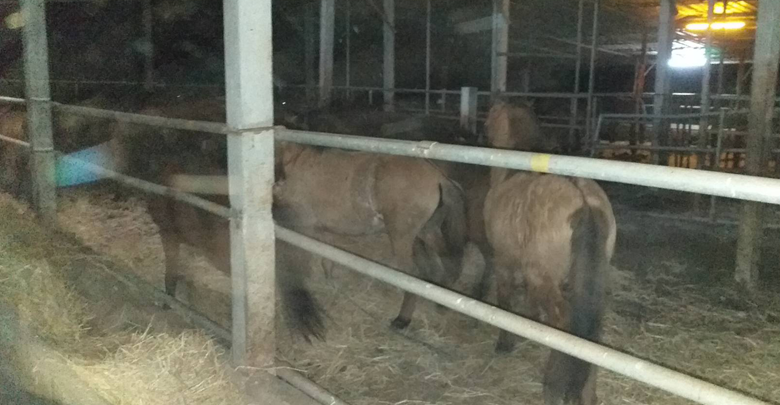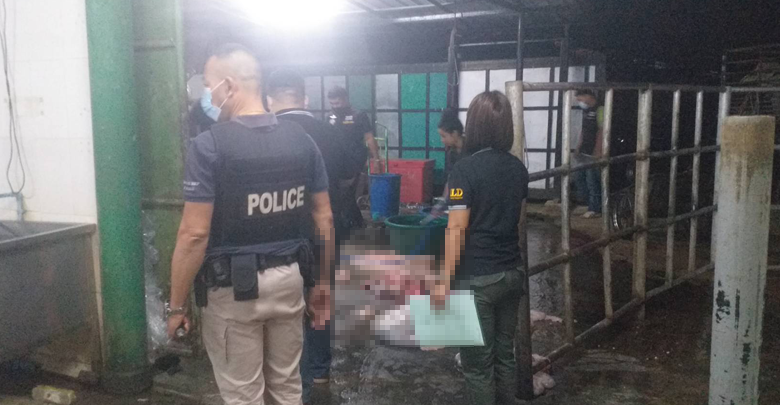Horse meat gang arrested, product sent to China and Vietnam.
Officials from the Natural Resources and Environmental Crime Division arrested Kanyarat 44-year-old from Khon Kaen Province for not registering animals with the local veterinarian, selling animals without permission, and other related charges. The suspect was arrested at a horse farm in Wang Yai District, Khon Kaen. The Watchdog Thailand Foundation notified officials about horses that have been sent to an illegal slaughterhouse in Nakhon Ratchasima Province. An investigation was started leading to the arrest and the discovery of houses waiting to be slaughtered.

Officials discovered the gang will be moving horses from a horse farm in Kamsagasaeng District in Nakhon Ratchasima to a farm located right next to a slaughterhouse in Wang Yai District, Khon Kaen. Police inspected the farm and found 44 horses, all have not been registered with the local veterinarian. The horses were lined up to be delivered at the slaughterhouse. The farm owner was also arrested and admitted that he purchased all the horses to sell their meat. If officials hadn’t found them the plan was to slaughter the horses for their meat and parts. The meat is sold for 100 THB per kilogram to a buyer who moves the horse meat to Vietnam and China. The buyer smuggles the horse meat through natural passageways.
Kanyarat has been delivered to the Wang Yai Police Station waiting for prosecution. Officials will also be continuing the investigation to find related persons in the horsemeat gang. Horse meat looks similar to beef but usually darker and has yellow fat. The Animal Welfare Institute states that horse meat in the U.S is unfit for human consumption due to the uncontrolled dangerous drugs. Horses are given hundreds of drugs before they are slaughtered. The chemicals are given constantly throughout these horses’ lives. Most of these substances are determined not for use in animals intended to be eaten by humans.

FB Caption: The horse meat is sold for 100 THB per kilo to a buyer who smuggles it to China and Vietnam.
Source: Humane Society, INN News



